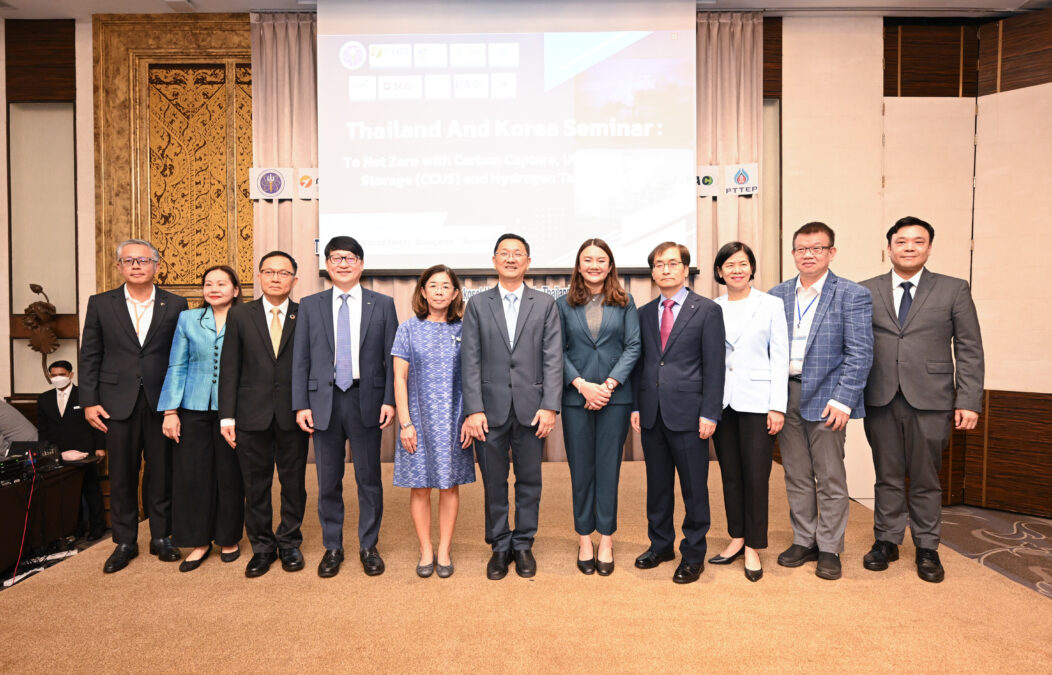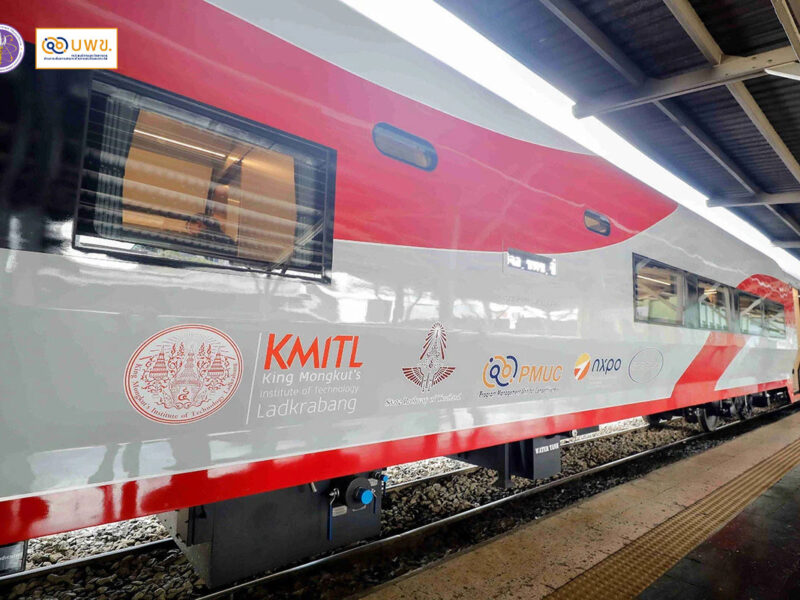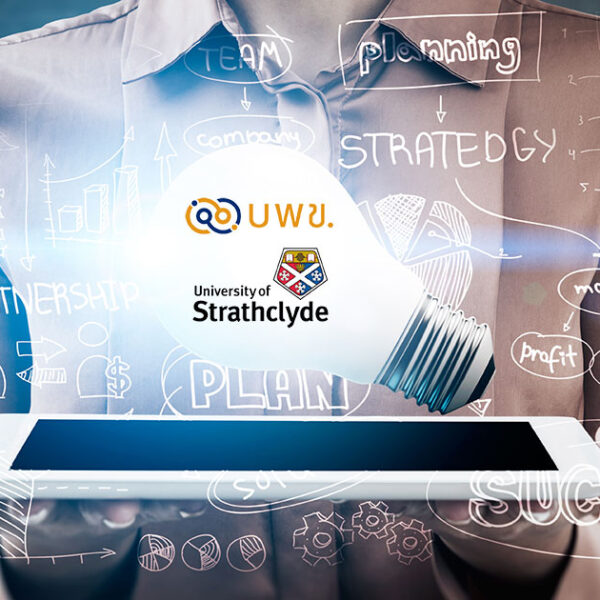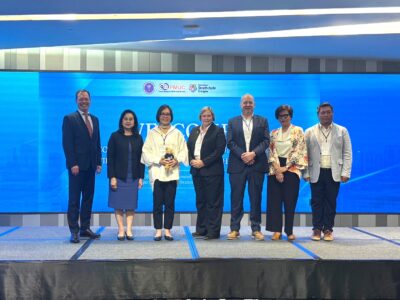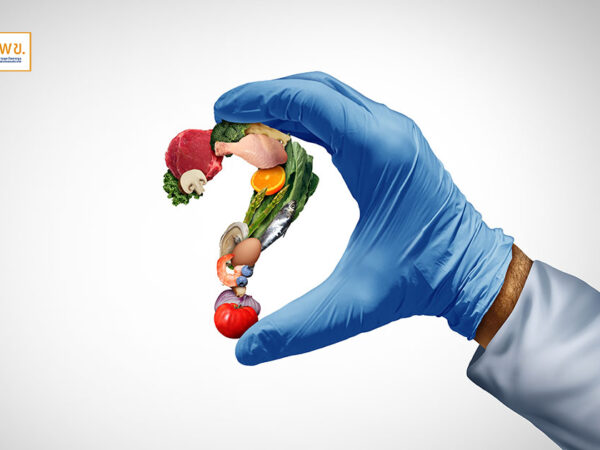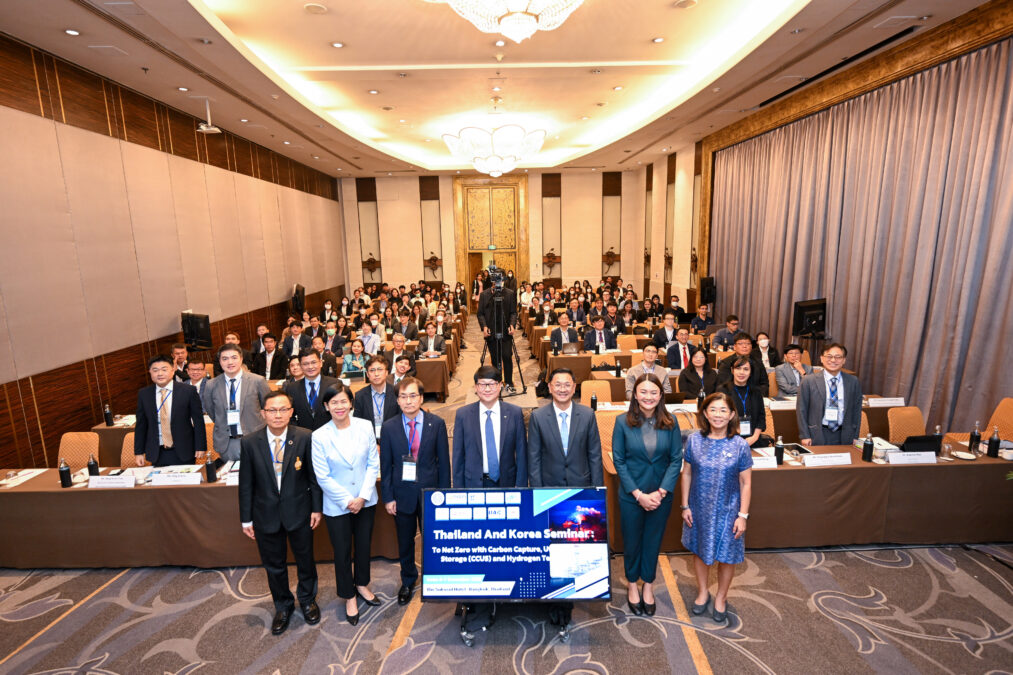
The Ministry of Higher Education, Science, Research, and Innovation (MHESI), through the Program Management Unit for Competitiveness (PMUC) in collaboration with the Program Management Unit for Human Resources & Institutional Development, Research and Innovation (PMU-B), organized the seminar “Thailand and Korea Seminar: To Net Zero with Carbon Capture, Utilization and Storage (CCUS) and Hydrogen Technologies” between December 6-7, 2023, at the Kamolthip 3 meeting room, the Sukosol Hotel, Bangkok. The purpose of the seminar is to develop and exchange CCUS and hydrogen technologies between the public and private sectors of Thailand and the Republic of Korea, with the aim of driving Thailand towards the goals of Carbon Neutrality and Net Zero Emission in the future.
Thailand has declared its commitment to achieving carbon neutrality by 2050 and net zero greenhouse gas emissions by 2065. As part of this effort, CCUS (Carbon Capture, Utilization, and Storage) technology will play a crucial role in reducing Thailand’s carbon dioxide emissions by at least 14 million tons per year by 2050 and 60 million tons per year by 2065. However, to meet these ambitious targets, strategic integration of technology and policy is essential. The Program Management Unit for Competitiveness (PMUC) and the Program Management Unit for Human Resources & Institutional Development, Research and Innovation (PMU-B), as the country’s R&D funding agencies under the Ministry of Higher Education, Science, Research, and Innovation, organized the “Thailand and Korea Seminar: To Net Zero with Carbon Capture, Utilization, and Storage (CCUS) and Hydrogen Technologies” on December 6-7, 2023. This seminar aimed to foster research collaboration on CCUS and hydrogen technologies between the public and private sectors of Thailand and the Republic of Korea, and to explore joint business development and investment opportunities in these technologies to strengthen and sustain their development in Thailand. The event also served as a platform for knowledge exchange and sharing best practices for promoting and driving research and policy in CCUS and hydrogen with research agencies from the Republic of Korea, which has leading research institutions and private sector networks in Asia for the commercial development of CCUS and hydrogen technologies.

Assoc. Prof. Thongchai Suwansichon, Ph.D., Director of PMUC, stated, “The goal of today’s seminar is to create a forum for discussion, knowledge exchange, and the development of effective collaborative strategies, aligned with the shared vision of both Thailand and the Republic of Korea. We emphasize the importance of CCUS and hydrogen technologies in achieving carbon neutrality and net zero emissions. By establishing a joint research network between the two countries, creating pathways for joint business development, investing in CCUS and hydrogen technologies, and facilitating the exchange of best practices in promoting and driving research and policy in these areas, we can move towards our shared goals. These efforts began in June 2023 and demonstrate the visionary approach of Thailand and Korean agencies in developing research and innovation related to CCUS and hydrogen technologies. Today’s participants include Thai and Korean institutions involved in CCUS policy making, Thai private sector representatives, and key stakeholders from both countries with deep expertise in these technologies. Thus, this seminar will serve as a medium for international cooperation, knowledge sharing, and the advancement of research and innovation in CCUS and hydrogen technologies. Through these collaborative efforts, we are committed to significantly contributing to Thailand’s achievement of carbon neutrality and net zero emissions by 2065.”
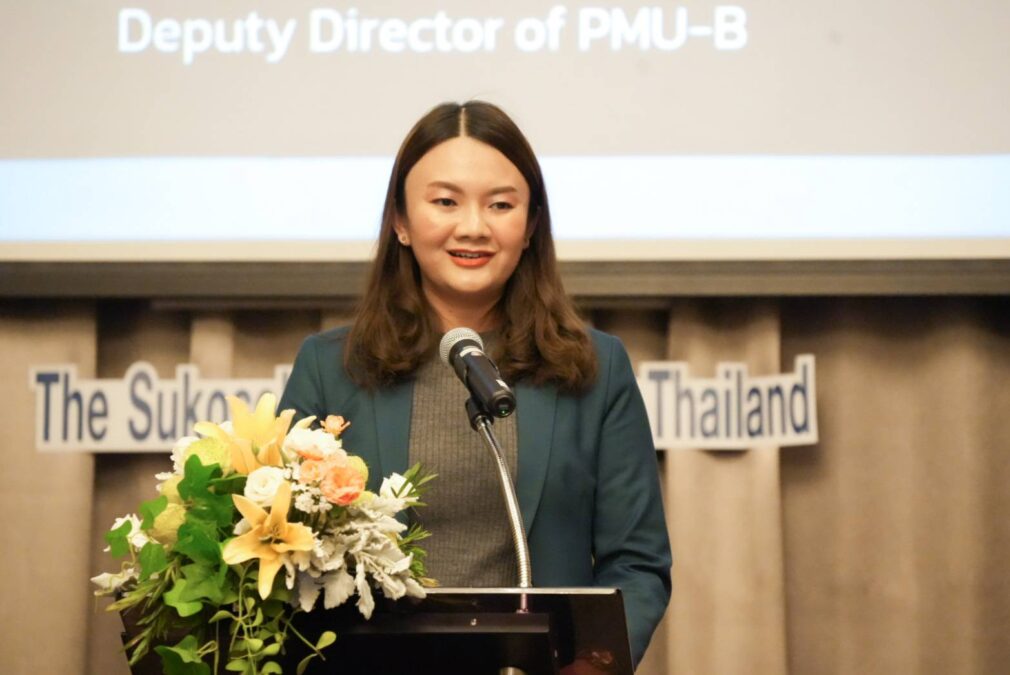
Assistant Professor Sirinant Kulchat, Ph.D., Deputy Director of PMU-B, added, “PMU-B has the Net Zero Emission Flagship Project that focuses on collaborative efforts both domestically and internationally. CCUS and hydrogen are crucial milestones in driving the Net Zero project and collective efforts to combat climate change. CCUS and hydrogen technologies will be future technologies that help reduce carbon emissions in various industries. The insights and guidelines from the experts gathered today will help shape CCUS and hydrogen policies, foster international cooperation, and mobilize the necessary resources to successfully implement CCUS initiatives. We believe that the technology and knowledge from this seminar will help Thailand adopt the best practices from the Republic of Korea and lead to future collaborations between Thailand and Korea in supporting CCUS and hydrogen technologies.”
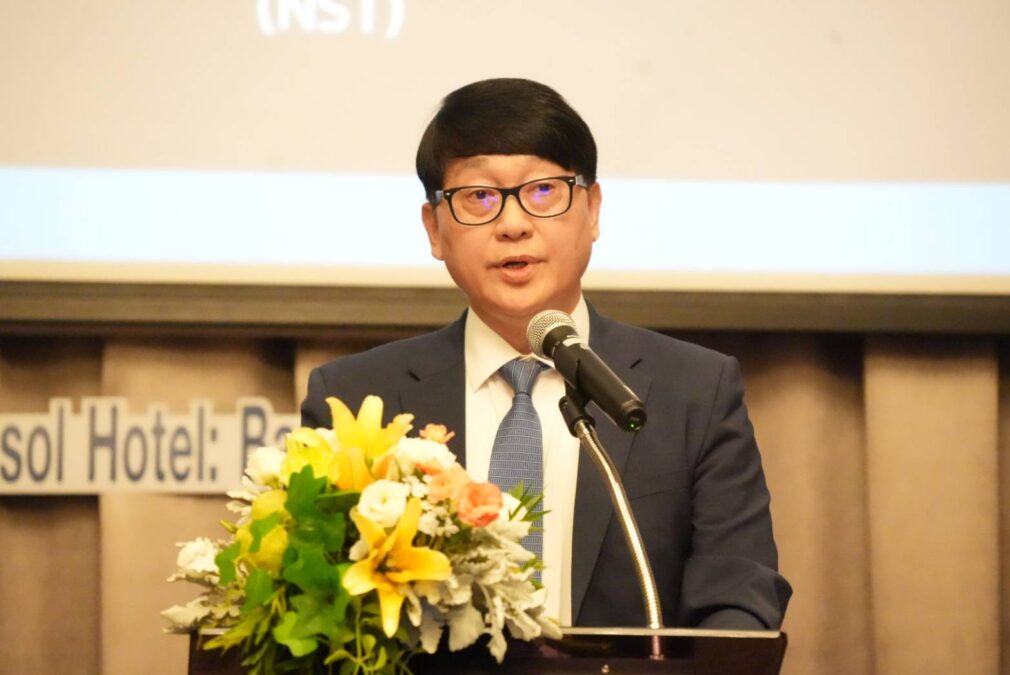
Dr. Inhwan Lee, Director General of the National Research Council of Science and Technology (NST) of the Republic of Korea, said, “Currently, there is significant global development in CCUS technology. It is evident that without CCUS technology, it would be impossible to adapt to climate change. The United States and Europe are leading in these efforts, and Korea is also accelerating its CCUS technology initiatives in the Asian region. It is well known that CCUS and hydrogen technologies are essential for reducing carbon emissions. The Korean government has begun discussions with Non-Governmental Organizations (NGOs) on this issue and is also promoting policies to strengthen CCUS technology. During the visits to NST in the Republic of Korea by PMUC and PMU-B’s executives in June and August, we presented our CCUS and hydrogen technologies to each other. Korea is very impressed with the efforts of the Thai government and businesses pushing forward CCUS and hydrogen technologies effectively. To enhance cooperation networks, this seminar gathers experts from various organizations to exchange knowledge and technology over two days. This seminar aims to find cooperation methods leading to real implementation, and we hope it will be a good starting point for promoting a mutually beneficial relationship and collaboration between the Republic of Korea and Thailand.”
At the seminar, over 150 participants from government agencies, private sectors, and key stakeholders from both Thailand and the Republic of Korea attended. Various approaches and knowledge exchanges were presented on the following topics:
- CCUS (Carbon Capture, Utilization, and Storage) policies in Thailand
- CCUS policies in the Republic of Korea
- Research and technologies in carbon capture, utilization, and storage
- Research and technologies for hydrogen production and utilization
- Research and technologies for hydrogen production from biomass
- Business matching and joint research ventures
The information exchanged at this seminar will be used to outline the strategies for promoting and driving research and policies to advance CCUS and hydrogen technology development in Thailand. PMUC and PMU-B will be the main agencies supporting funding for the research and development of these technologies for commercial use in Thailand.
